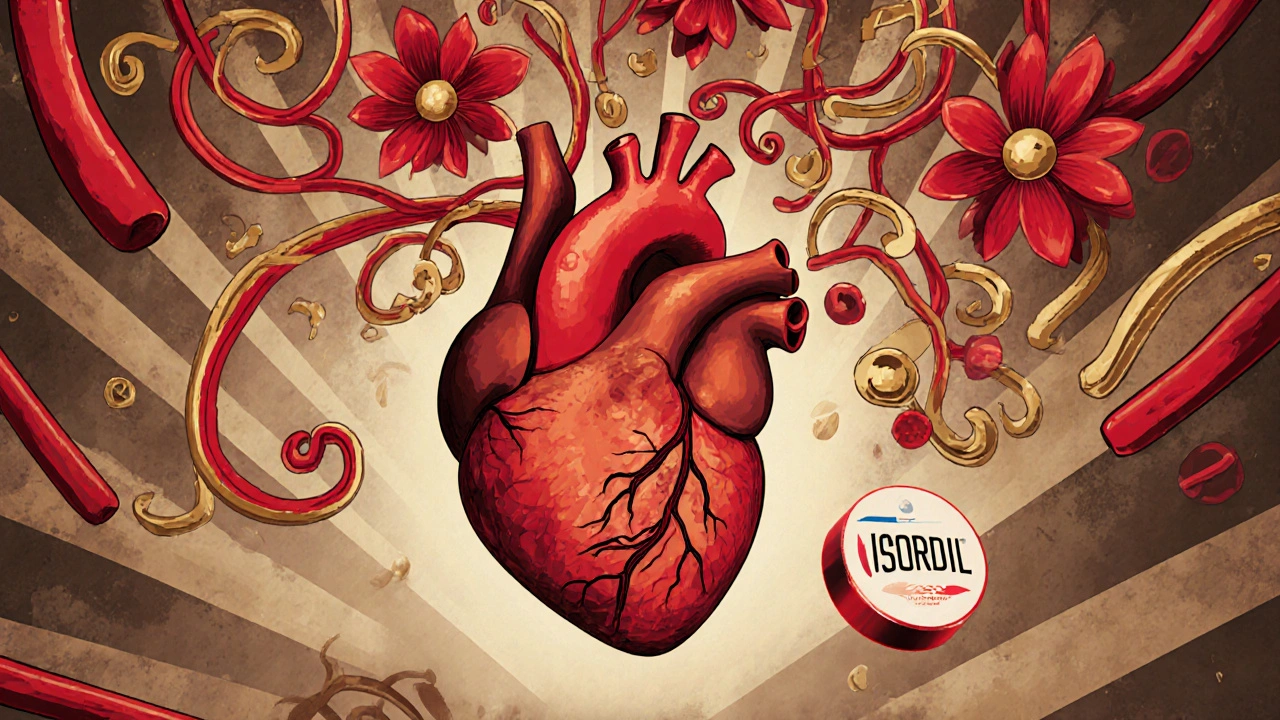Isosorbide Dinitrate: What It Does, Who Uses It, and What You Need to Know
When your heart struggles to get enough oxygen, isosorbide dinitrate, a nitrate medication used to prevent and treat chest pain caused by heart disease. Also known as ISDN, it works by relaxing blood vessels so your heart doesn’t have to work as hard. This isn’t a cure—it’s a tool to keep you moving without that tight, squeezing pain in your chest. People with stable angina, heart failure, or those recovering from a heart attack often take it daily, sometimes in combination with other drugs like beta-blockers or calcium channel blockers.
It’s not just about the pill. angina, the chest discomfort linked to reduced blood flow to the heart is the main reason people use isosorbide dinitrate. But it doesn’t work the same for everyone. Some feel relief within minutes; others need to take it regularly to prevent attacks. Side effects like headaches or dizziness are common at first, but many users adapt. What’s less talked about is how it fits into a bigger picture—lifestyle changes like quitting smoking, watching salt intake, and avoiding heavy meals can make this drug work better. It’s not magic. It’s support.
And it’s not the only option. nitrate medication, a class of drugs that widen blood vessels to improve heart blood flow includes others like nitroglycerin, which acts faster but doesn’t last as long. Isosorbide dinitrate is built for longer-term use. You might see it paired with hydralazine for heart failure patients, especially in Black adults, where studies show better outcomes. But it’s not for everyone—people with low blood pressure, certain heart valve issues, or those taking erectile dysfunction drugs like sildenafil should avoid it. The risks are real, and they’re not always obvious.
What you’ll find in the posts below isn’t just a list of drug facts. It’s real-world comparisons—how isosorbide dinitrate stacks up against other heart meds, what patients actually experience, and how doctors decide who gets it. You’ll see how it fits with treatments for high blood pressure, heart failure, and even how diet and exercise can change its effectiveness. No fluff. No jargon. Just what matters when your heart is telling you something’s off.

